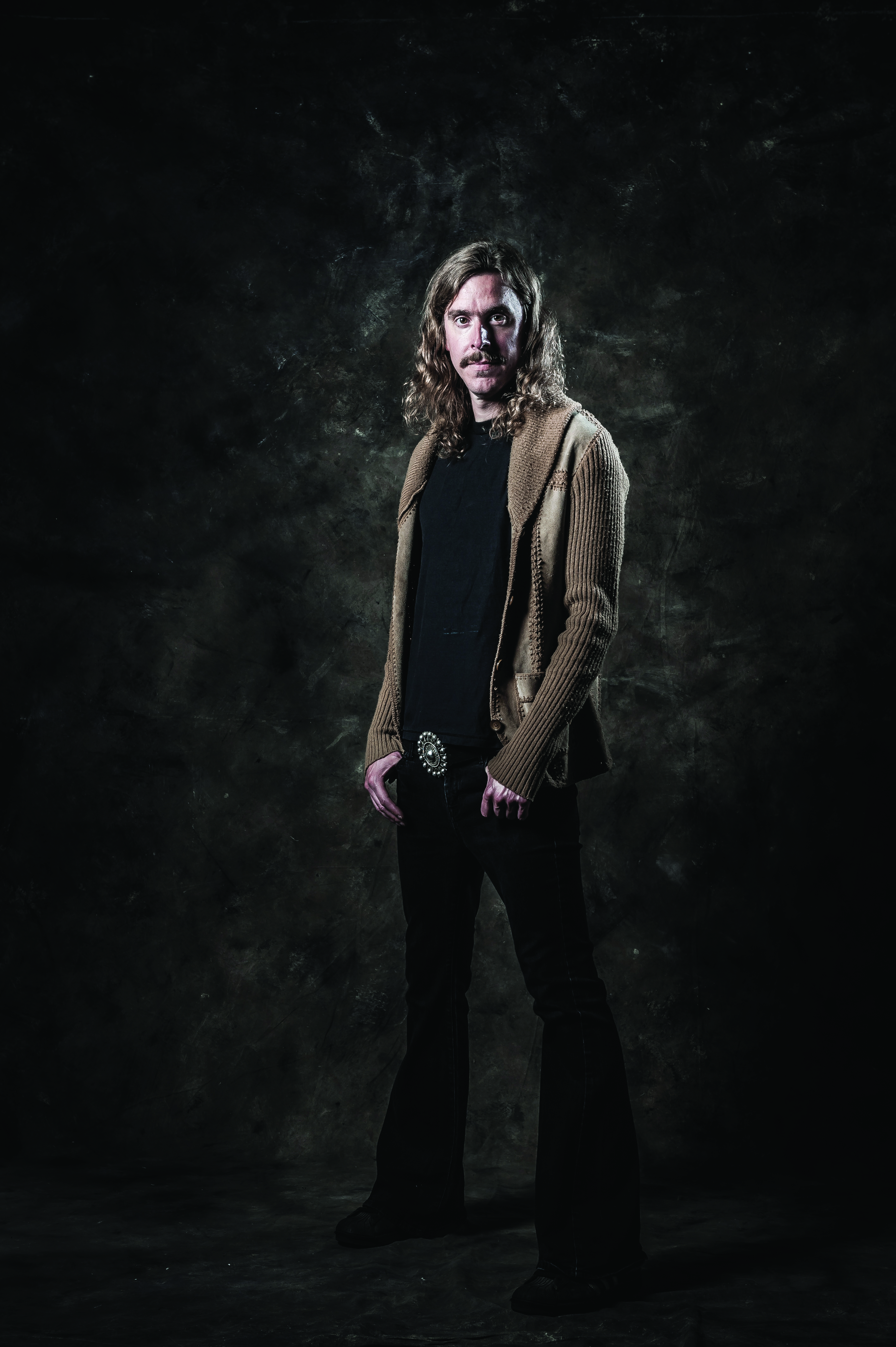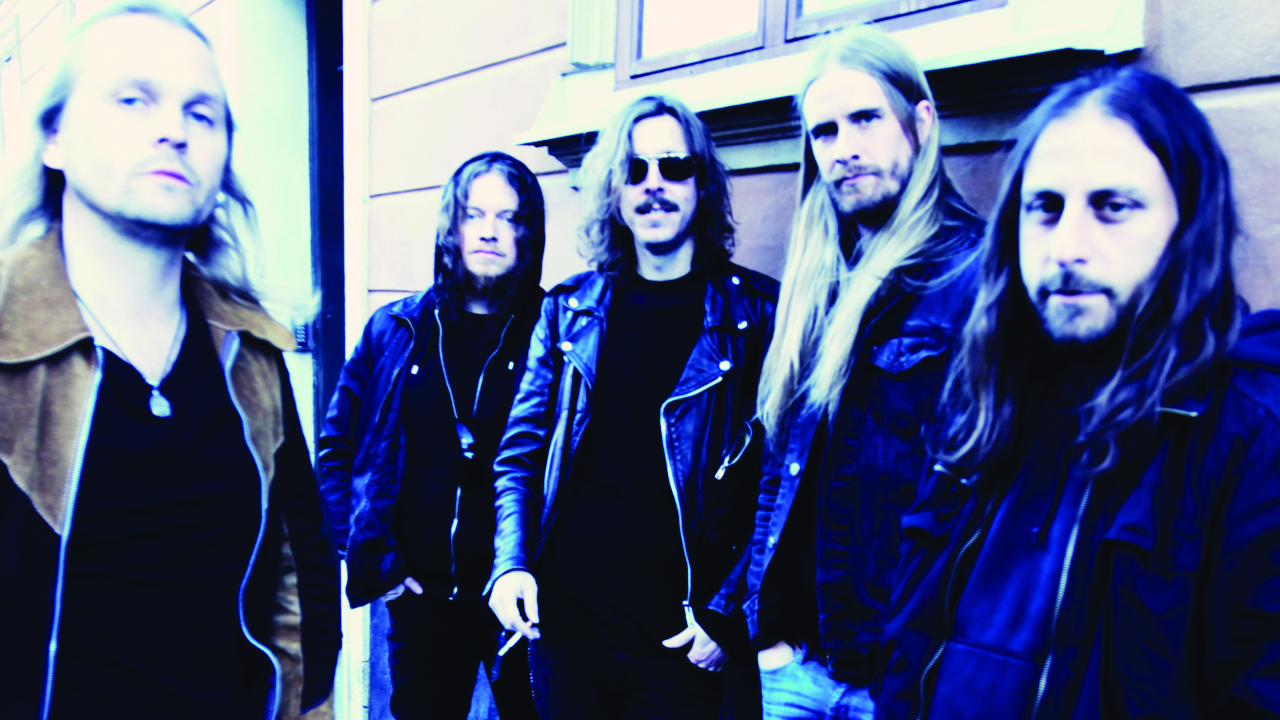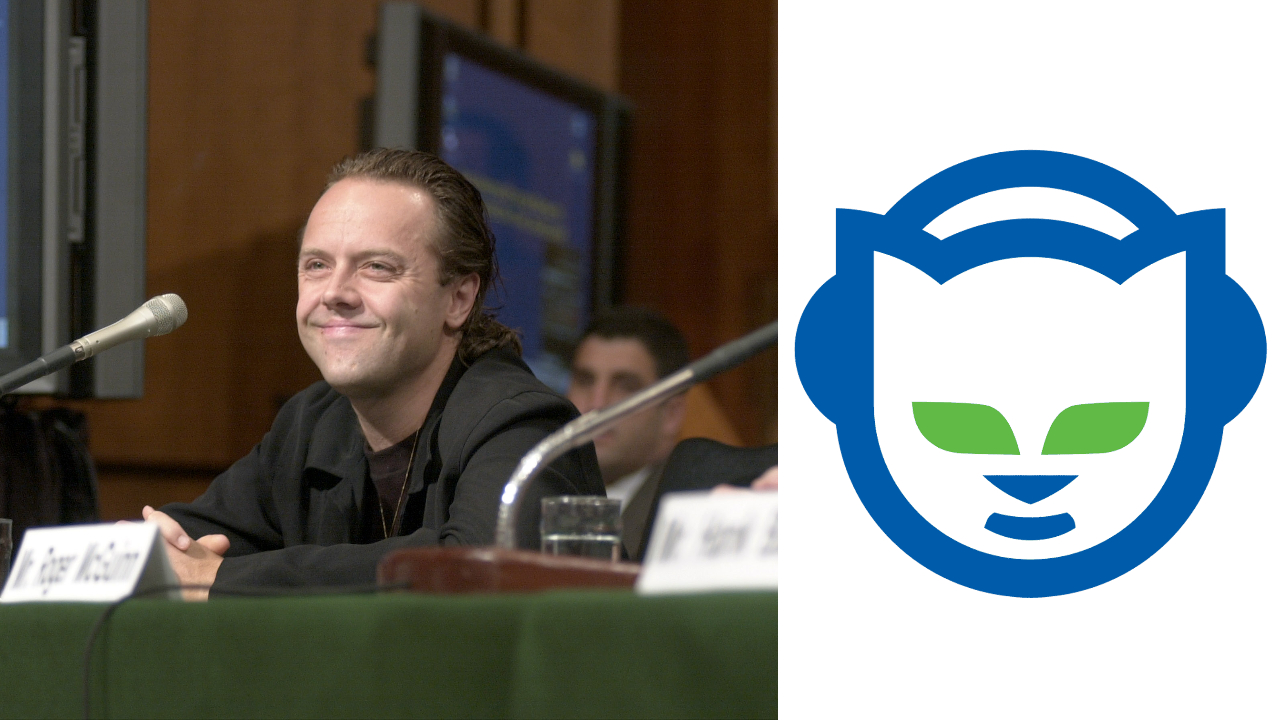You can trust Louder
Eagerly awaited by many, the delay on Opeth’s 11th studio album only added further speculation to the potent mix of expectation and concern for fans of the prog metal giants’ more metallic sound.
Was this a return to metallic might after the progmungously diverse Heritage? Had the label rejected the original album as too soft, telling Mikael Åkerfeldt to return to the studio and turn it up? Was the original album just not very good at all and the band had been forced to re-record it? The answer to all these questions is a resounding no. But before the naysayers start bellowing their disappointment, it should be noted that such statements should be overshadowed with one that states that Pale Communion is a thoroughly good Opeth record. In fact, it might even be a brilliant one.
But let’s get the elephant in the room out of the way first. This isn’t a metal record. It is a lovingly crafted hard rock album that harks back to times long gone, ones not only beloved by Mikael, but which laid the foundations for rock music today. True, it’s more prog rock than death metal, but if anyone was under the belief a few misguided bellowed gripes at concerts demanding the band “play some metal” might see capitulation, then they don’t know Mikael terribly well.
Pale Communion continues the journey begun, most probably, on 2001’s Blackwater Park, although the signs as to where Opeth may end up were evident even as far back as Orchid. There’s a more cohesive feel to this album than Heritage, which in reality sounded like a collection of songs reflecting the band’s varied influences. In terms of songwriting, this stands head and shoulders above its predecessor.
Musically, the tempo only really raises steam on the driving Cusp Of Eternity, with its twisting solo from Fredrik Åkesson, although the excellent, epic Moon Above, Sun Below and Voice Of Treason flex muscle. But mostly, Pale Communion is about a stridently excellent vocal showing from its leader, proving once again what a great singer he is (despite his self-deprecating denials), and the masterful implementation of Joakim Svalberg’s keyboards into the band’s sound. These two factors lead the way throughout the album’s voyage.
Opener Eternal Rains Will Come throws the listener an awkward curveball, playing to Mikael’s proggiest strengths and laying down a message that, once again, the extreme quota is going to be pretty minimal. Elysian Woes is a mournful, largely acoustic piece reflecting typical Opeth rhythms and motifs that will crop up later in the album (ooh, how prog!), while quite what the average metal fan will make of Goblin, essentially a tribute to the Italian odd-bod prog band, and the folk/country-inflected River, we don’t know. But it doesn’t stop them being bloody great songs.
Faith In Others closes proceedings in a relatively low-key manner, perhaps a move to show that the journey carries on twisting and winding away from the band’s earliest sound. Maybe not music to everyone’s ears, but taking the musical path they have over the past quarter of a century or so, Opeth have arrived at a time when they’re making profoundly excellent, beautiful music. Once, all albums were made this way. Opeth have never forgotten that.
Sign up below to get the latest from Metal Hammer, plus exclusive special offers, direct to your inbox!
Via Roadrunner

_ _
Mikael Åkerfeldt
Vocals, Guitar
_ _
The production on this album has an 80s feel…
“We were going for an early 80s kinda production. I wrote music that I just thought was good, but sound-wise we wanted that kinda production. Before the 80s went wrong, if you know what I mean! It’s a record that sounds real and human, which means a lot to me ’cos I absolutely despise the modern sounds of metal records. There’s no soul in it. You might have a great song and it can get wrecked by the perfect production. It’s not easy to listen to, your ears get tired quickly and there’s no dynamics in the sound. We’ve done a few of those kinda records, and it worked at the time, but now I’m really tired of that sound. I can’t stand it.”
River is quite a standout track, with its Mark Knopfler-style solos and CSNY harmonies. What’s the story behind it?
“I didn’t really get to where I wanted to take that song initially. I wanted to start with the really sweet, majory-sounding part and gradually make the song deteriorate. The original plan was to get to death metal at the end, or even grindcore! So from softer sounds through to hard rock, metal, death metal, grindcore and eventually just noise. But I didn’t make it that far.”
Would it be fair to say it’s almost… happy?
“Yeah! That’s almost like our Cardiacs song. I was really happy with it. I think it’s one that a lot of people are gonna hate. But I really love it, it’s one of my favourite songs ’cos it’s one of the most odd-sounding songs on the record or in our career, even.”
Writer and broadcaster Jerry Ewing is the Editor of Prog Magazine which he founded for Future Publishing in 2009. He grew up in Sydney and began his writing career in London for Metal Forces magazine in 1989. He has since written for Metal Hammer, Maxim, Vox, Stuff and Bizarre magazines, among others. He created and edited Classic Rock Magazine for Dennis Publishing in 1998 and is the author of a variety of books on both music and sport, including Wonderous Stories; A Journey Through The Landscape Of Progressive Rock.


